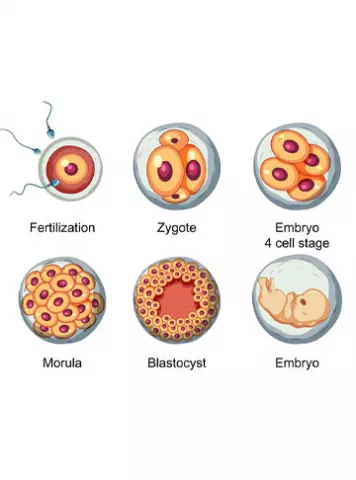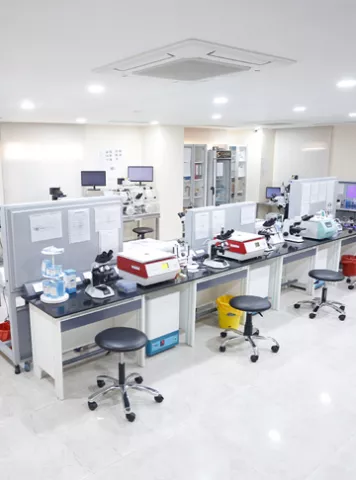Synopsis
Besides preventing pregnancy, the main reason why it is recommended to practice safe sex is avoiding STDs. The consequences of an STD are several, which in some cases can cause future fertility problems.
The relation between STD & Infertility-
Besides preventing pregnancy, the main reason why it is recommended to practice safe sex is avoiding STDs. The consequences of an STD are several, which in some cases can cause future fertility problems. Sexually transmitted infections (STIs), also called sexually transmitted diseases (STDs), are often asymptomatic. STD & infertility mostly go hand in hand.
Can STDs cause infertility in males too?
The answer to the above question “Can STDs cause infertility in males too?” is YES!
In case of women, they can be affected doubly as the bacteria may settle in the mucus produced by the cervix and thereby reducing sperm motility, or it may also affect the patency and function of the fallopian tubes. But when it comes to men, they are not free from possible future problems as well, as microorganisms can adhere to sperm, thereby affecting their quality and quantity.
Among the STDs, those that cause a higher rate of infertility are Chlamydia, caused by the bacteria Chlamydia trachomatis, and Gonorrhea, caused by the bacteria Neisseria gonorrhoeae.
Can STDs cause infertility in males & females both? If yes! Then which one are those?
6 STDs that can make you infertile are mentioned below-
1.) Chlamydia-
Chlamydia is one of the most common STIs in women, especially in young women. Painful urination is one of the symptoms, but the disease is most often asymptomatic. Chlamydia can affect the genitals, urinary tract, and eyes. If left untreated, it can lead to blindness, infertility, pelvic inflammatory disease, and ectopic pregnancy. It also poses a high risk to the health of infants born to infected mothers.
Chlamydia can be treated with antibiotics, but be careful, repetitive infections are common.
2.) Gonorrhea-
People diagnosed with Gonorrhea are at risk of serious complications. If left untreated, the disease can cause inflammation of the uterus and lead to infertility. A pregnant woman can also pass the infection on to her child. Also, infection in pregnant women can lead to premature labor and delivery as well as permanent blindness in the newborn.
3.) Human Papillomavirus (HPV)-
Human Papillomavirus (HPV) is another infection that can make it difficult to father children. In this case, we have to keep in mind that the immune system itself is able to overcome the infection after a few months or years (in many cases). When the lesions are extensive, the production of cervical mucus may be affected. There are more than 100 types of HPV, of which at least 14 are cancer-causing which are also known as high risk type.
4.) HIV or AIDS (STD infertility males)-
In addition to its known effects, HIV is another disease that can have a significant impact on fertility. In the case of women, it causes an increased risk of cervical abnormalities or early menopause, while in men (STD infertility males) it has been detected by the presence of orchitis (inflammation of the testes), hypogonadism (decreased production of hormones), oligozoospermia or azoospermia (decrease or absence of sperm in semen).
5.) Trichomoniasis-
Trichomoniasis is the most common curable STI. The organism Trichomonas vaginalis is a parasite that lives in the lower genital tract and is usually transmitted during sexual intercourse. It is problematic because it can infest areas not covered by the condom, which therefore does not fully protect against infection.
People of both sexes can get trichomoniasis. Symptoms vary from person to person, but many people who are infected do not know they have it and are therefore at risk of transmitting the infection.
Caution is a safe mother: Trichomoniasis can increase the risk of contracting or transmitting other STIs such as HIV, and pregnant women with them are at risk of having premature babies and low birth weight.
6.) Syphilis-
Transmitted during vaginal, anal or oral sex, Syphilis is manifested by the appearance of ulcers, called chancres on the genitals. If left untreated, syphilis can cause serious and permanent problems (brain damage, blindness, infertility or paralysis). Many people with syphilis do not have symptoms and do not know they are infected.
A mother can pass syphilis to her child during pregnancy or childbirth. This disease is the second leading cause of stillbirth worldwide and can lead to other adverse childbirth outcomes such as neonatal death, birth defects, prematurity and low birth weight.
Take these 6 STDs seriously. Get tested and treated quickly if you are at risk or have any of the related symptoms. Don’t let these STDs be a reason behind your infertility.
Comments
Articles
2022


Guide to infertility treatments Blastocyst Culture And Transfer
Patient’s Guide to IVF – Post Embryo Transfer DO’s and DONT’s
Although there are not many things that an IVF patient, who has recently got a...
2022


Guide to infertility treatments Blastocyst Culture And Transfer
IVF Process in 3 Simple Steps: Stimulate, Retrieve, Transfer
INTRODUCTION IVF, In vitro fertilization, is an infertility treatment of fe...
2022


Guide to infertility treatments Blastocyst Culture And Transfer
Step by Step- Embryo Transfer
The IVF procedure culminates with embryo transfer. It is very important to mak...
2022


Guide to infertility treatments Blastocyst Culture And Transfer
How Many Embryos Should I Transfer
Embryos Transfer – Introduction The 1st successful invitro fertilisation ...
2022


Guide to infertility treatments Blastocyst Culture And Transfer
What Is The Best Advice After Embryo Transfer
In Vitro Fertilisation, popularly referred as IVF has captured attention since...
2022


Guide to infertility treatments Blastocyst Culture And Transfer
Elective single embryo transfer (eSET): A safe option in IVF
What is Single Embryo transfer or SET? Single embryo transfer (SET)is an el...
2022


Guide to infertility treatments Blastocyst Culture And Transfer
Embryo Transfer Process
What is Embryo Transfer ? ▪ Embryo Transfer is a very crucial step in IVF...
2022


Guide to infertility treatments Blastocyst Culture And Transfer
What are the Benefits of Frozen Embryo transfer?
Frozen Embryo Childlessness was considered a social stigma since ages. Mill...
2022


Guide to infertility treatments Blastocyst Culture And Transfer
Quality control (QC) concerning pH, temperature and osmolality in the embryology lab
The efficiency of the embryology lab protocols can be improved by conducting r...
Tools to help you plan better
Get quick understanding of your fertility cycle and accordingly make a schedule to track it















